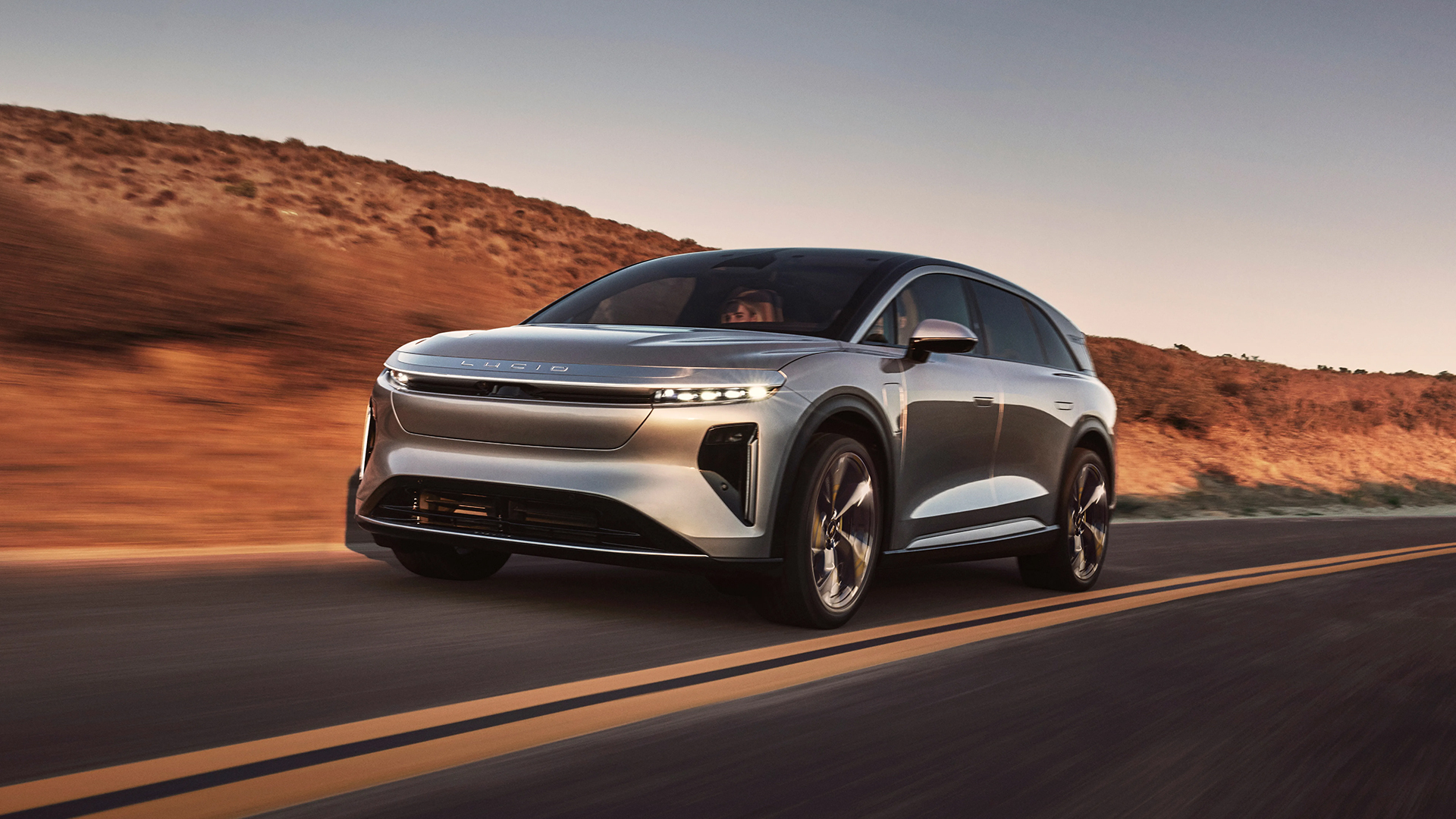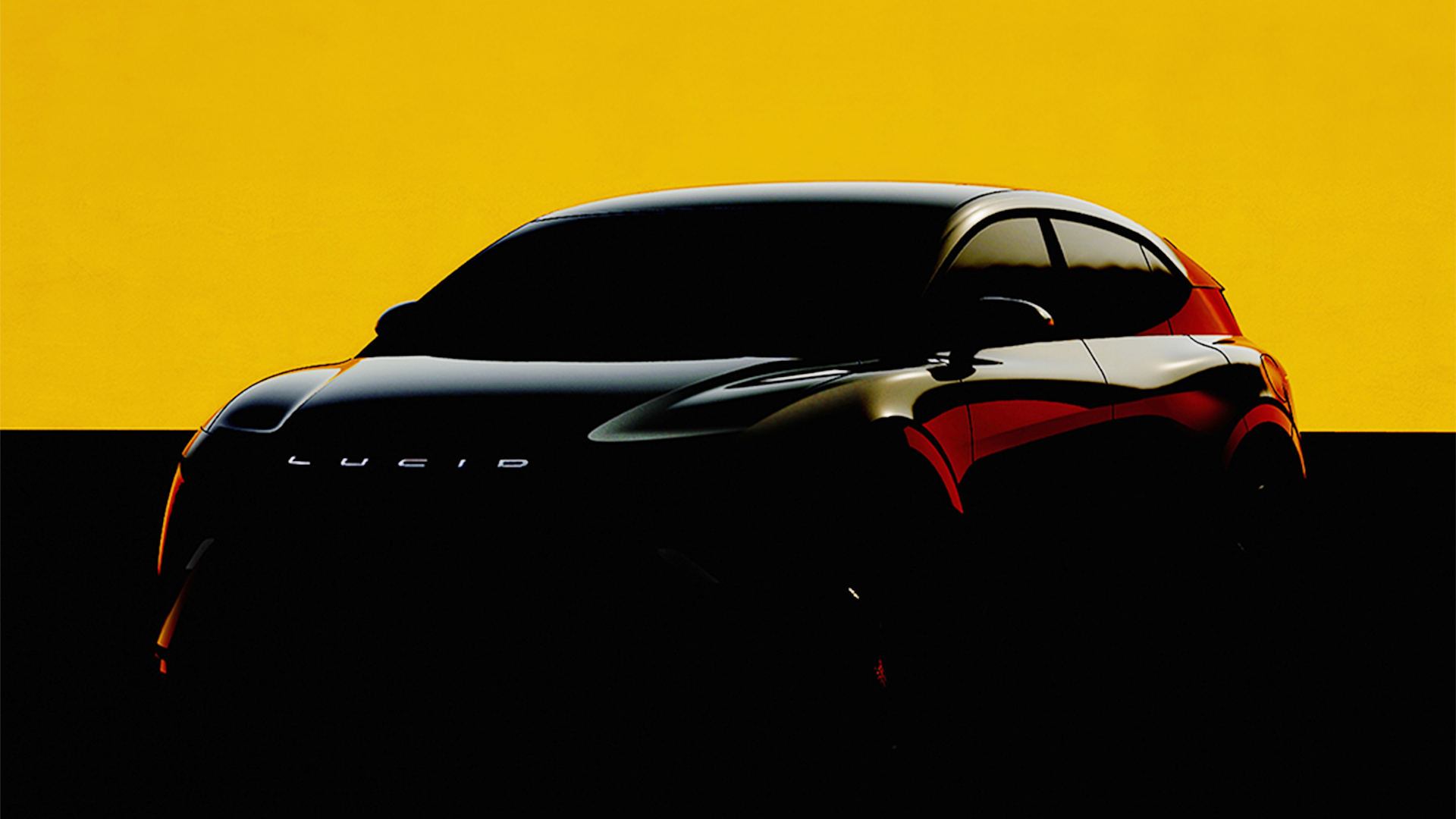Lucid's affordable new SUV shows it's planning to overtake Tesla as the new EV king
Company ready to expand range to compete with key Tesla models

Californian EV manufacturer Lucid held a Technology and Manufacturing Day event this week, where it unveiled more information about its upcoming Gravity SUV, as well as hinting at more affordable models that will arrive in 2026 and beyond.
The company, which currently only offers its Air model – an EV that has won many plaudits for its class-leading electric range and battery efficiency – will expand into the popular SUV market with the Gravity, due to arrive later this year.
Lucid confirmed that model will come with a native Tesla North American Charging Standard (NACS), meaning it will be able to make the most of Tesla’s Supercharger charging network.
Gravity, which offers at least 440 miles of range and more than 800bhp in some models, is expected start at around $80,000 (around £61,000 / AU$120,000), but much like the Air model, more extreme performance figures and trim specifications can see that figure skyrocket to in excess of $250,000 (or around £191,000/AU$374,000).
It is expected that Gravity pricing will follow a similar pattern, but in order to remain competitive over the coming years, Lucid also offered a sneak preview at an upcoming midsize platform that will underpin a new crossover model.
Hotly tipped to square off against Tesla’s popular Model Y, Lucid claims this upcoming EV will deliver "the same range as competitors while using a smaller battery”. It is also scheduled to start production in late 2026, with a starting price under $50,000.
This move to more affordable electric vehicles puts the company in prime position to take the fight to Tesla, arguably its closest competitor in terms of overall vision, technological advancements and its commitment to pure electric cars, with Lucid Motors CEO Peter Rawlinson telling The Verge that he feels hybrids “offer the worst of all”.
Get daily insight, inspiration and deals in your inbox
Sign up for breaking news, reviews, opinion, top tech deals, and more.
Taking the fight to Tesla

Earlier this year, Lucid announced that it received another $1.5bn in funding from its largest shareholder, Saudi Arabia’s Public Investment Fund, in order to weather the global cooling off in EV demand and assist in launching its latest Gravity model.
As a result, its upcoming smaller and more affordable EV is destined to be manufactured in Saudi Arabia, while it has also hinted at a brace of upcoming models that will take on Tesla’s Model 3, as well as a move into a "more ruggedized category", according to CEO Rawlinson in that same interview with The Verge.
With Lucid’s reputation for offering a rock-solid electric range and the latest in-car tech, it is well placed to enter the more competitive mass EV market, which is still dominated by Elon Musk’s Tesla.
But with the company’s enigmatic CEO seemingly distracted by politics and saving his social media empire, a number of shareholders have publicly cited their reasons for selling up, with the general consensus being that the company has lost its focus on driving the EV market forward and promoting cleaner transportation in general.
Lucid has already made waves in the industry with a great product, and with the promise of a rapidly expanding range of more affordable vehicles, as well as a push into European markets, it looks like it is on course to become a major player and perhaps the company Tesla once promised.
You might also like

Leon has been navigating a world where automotive and tech collide for almost 20 years, reporting on everything from in-car entertainment to robotised manufacturing plants. Currently, EVs are the focus of his attentions, but give it a few years and it will be electric vertical take-off and landing craft. Outside of work hours, he can be found tinkering with distinctly analogue motorcycles, because electric motors are no replacement for an old Honda inline four.